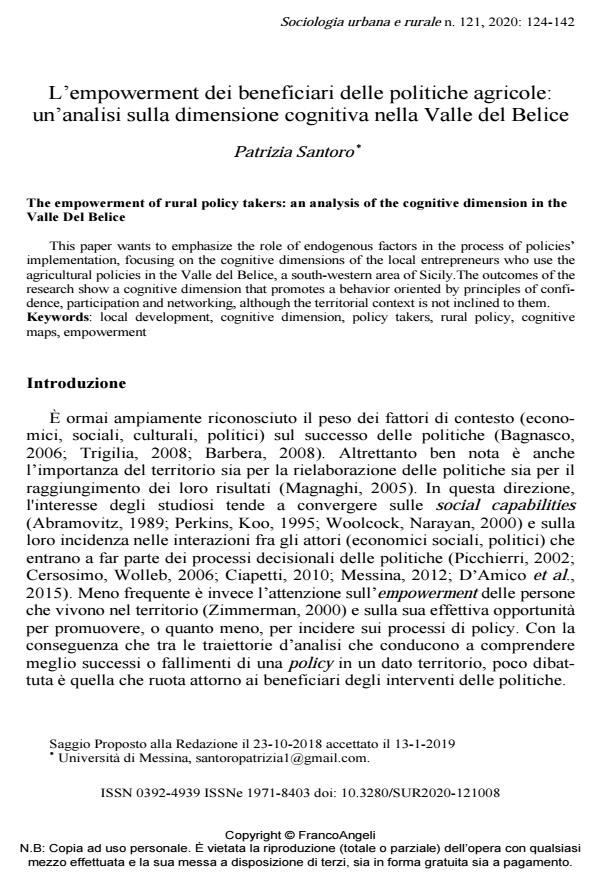The empowerment of rural policy takers: an analysis of the cognitive dimension in the Valle Del Belice
Journal title SOCIOLOGIA URBANA E RURALE
Author/s Patrizia Santoro
Publishing Year 2020 Issue 2020/121
Language Italian Pages 19 P. 124-142 File size 247 KB
DOI 10.3280/SUR2020-121008
DOI is like a bar code for intellectual property: to have more infomation
click here
Below, you can see the article first page
If you want to buy this article in PDF format, you can do it, following the instructions to buy download credits

FrancoAngeli is member of Publishers International Linking Association, Inc (PILA), a not-for-profit association which run the CrossRef service enabling links to and from online scholarly content.
This paper wants to emphasize the role of endogenous factors in the process of policies’ implementation, focusing on the cognitive dimensions of the local entrepreneurs who use the agricultural policies in the Valle del Belice, a south-western area of Sicily.The outcomes of the research show a cognitive dimension that promotes a behavior oriented by principles of confi-dence, participation and networking, although the territorial context is not inclined to them.
Keywords: Local development, cognitive dimension, policy takers, rural policy, cognitive maps, empowerment
Patrizia Santoro, L’empowerment dei beneficiari delle politiche agricole: un’analisi sulla dimensione cognitiva nella Valle del Belice in "SOCIOLOGIA URBANA E RURALE" 121/2020, pp 124-142, DOI: 10.3280/SUR2020-121008